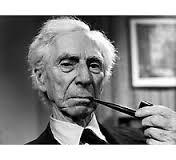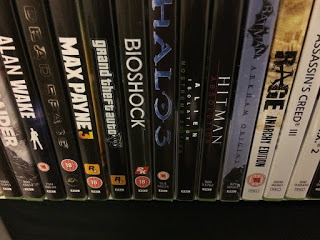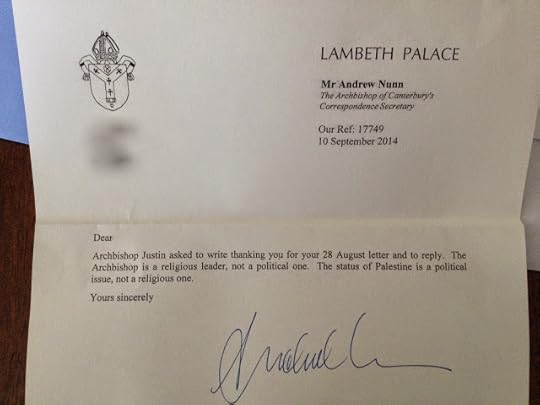Tim Atkinson's Blog, page 37
February 4, 2016
Pip pip!
Happy birthday to The Pips! No, not Gladys Knight's backing singers but the six little 'pips' that pipe the hour (sometimes, not as often as they used to) on the radio.
Ninety years ago this very day they were heard (or 'it' - the GTS, was) for the first time after Lord Reith, no less, had decided some system of broadcasting the time - accurately - was needed.
Being 'of a certain age' I can remember when they were played almost ubiquitously, on the hour across the BBC's vast network. Which also means I can remember that subtle change - the subtlest, a slight lengthening of the last one - which was introduced in 1972. So, ninety years of service then, sterling service too, from the Royal Observatory: just don't let anyone fool you into believing that they've stayed the same!
Pip, pip!
Ninety years ago this very day they were heard (or 'it' - the GTS, was) for the first time after Lord Reith, no less, had decided some system of broadcasting the time - accurately - was needed.
Being 'of a certain age' I can remember when they were played almost ubiquitously, on the hour across the BBC's vast network. Which also means I can remember that subtle change - the subtlest, a slight lengthening of the last one - which was introduced in 1972. So, ninety years of service then, sterling service too, from the Royal Observatory: just don't let anyone fool you into believing that they've stayed the same!
Pip, pip!
Published on February 04, 2016 23:10
I 'ad that Bertrand Russell in the back o' me cab once...
We'd all like to know what it's all about, wouldn't we? And if anyone might be expected to know the answer, surely the (self-proclaimed?) cleverest man in the world should?
But no. Another case where the cup of happiness and eager expectation is dashed from our lips at the last moment...

Incidentally, did you know that Bertrand Russell was the inspiration for Professor Yaffle in Bagpuss?

(What do you mean you don't know who Bertrand Russell is?)

But no. Another case where the cup of happiness and eager expectation is dashed from our lips at the last moment...

Incidentally, did you know that Bertrand Russell was the inspiration for Professor Yaffle in Bagpuss?

(What do you mean you don't know who Bertrand Russell is?)

Published on February 04, 2016 02:46
January 30, 2016
Saturday girl... episode 2
In the second instalment of our occasional series in the life of a part-time sales assistant, we join the action late one Saturday afternoon in the lingerie section of that well-known High Street retailer beloved of generations of mainly female shoppers...
Cast: customer (mid-late fifties, male, shirt and tie, tweed jacket, with the bucolic gait and ruddy countenance of, perhaps, a farmer; sales assistant (the eponymous Saturday girl).
Customer: I'd like a bra, please.
Saturday girl: Certainly, sir. What size?
Customer: Oh, er... I don't really know.
Saturday girl: Ok, well. Any idea what type?
Customer: What type?
Saturday girl: What type of bra?
Customer: Well, one to hold a pair o' boobs o' course (he laughs).
Saturday girl: Ah, ok sir. So, er... how big are they?
Customer: Well how should I know? How big do you think they are?
Saturday girl: Who is the bra for, sir?
Customer: For?
Saturday girl: Yes, perhaps it would be better for the person to come to the store themselves? We can measure them. We have a specialist bra-fitting service and...
Customer: What d'you mean? I'm not sure I want anyone fiddling around wi' a tape measure underneath me shirt. Besides, I'm ticklish.
Saturday girl: Well yes, of course, sir, but...
(A penny drops, from a great height and making quite a din, like a gong in the monastic silence of a cathedral-size acoustic.)
Saturday girl: (quietly) Who did you say the bra was for, sir?
Customer: Why - me o' course.
Exeunt, pursued by a bra.

Cast: customer (mid-late fifties, male, shirt and tie, tweed jacket, with the bucolic gait and ruddy countenance of, perhaps, a farmer; sales assistant (the eponymous Saturday girl).
Customer: I'd like a bra, please.
Saturday girl: Certainly, sir. What size?
Customer: Oh, er... I don't really know.
Saturday girl: Ok, well. Any idea what type?
Customer: What type?
Saturday girl: What type of bra?
Customer: Well, one to hold a pair o' boobs o' course (he laughs).
Saturday girl: Ah, ok sir. So, er... how big are they?
Customer: Well how should I know? How big do you think they are?
Saturday girl: Who is the bra for, sir?
Customer: For?
Saturday girl: Yes, perhaps it would be better for the person to come to the store themselves? We can measure them. We have a specialist bra-fitting service and...
Customer: What d'you mean? I'm not sure I want anyone fiddling around wi' a tape measure underneath me shirt. Besides, I'm ticklish.
Saturday girl: Well yes, of course, sir, but...
(A penny drops, from a great height and making quite a din, like a gong in the monastic silence of a cathedral-size acoustic.)
Saturday girl: (quietly) Who did you say the bra was for, sir?
Customer: Why - me o' course.
Exeunt, pursued by a bra.

Published on January 30, 2016 01:46
January 27, 2016
Let us pray
He who sings prays twice, so the saying goes. So it's appropriate that today's post, following my interview with the young chanteuse Emmie Beckitt, should be about prayer. Serious stuff, I know. But then, today is a serious day. Holocaust Memorial Day, to be precise. The day 71 years ago that the Auschwitz death camp was liberated by the Soviet army. So bear with me...
My musing on the subject began early - very early - this morning thanks to being woken by Charlie. He'd had a bad dream. Settling him, cuddling him and gently persuading him back to his own bed, I climbed back into mine certain I was unlikely to sleep. So, my nocturnal friend, the radio. (I have a pillow speaker, so as not to wake my wife) came to my rescue as I lay in the darkness.
Early on BBC Radio Four, following the Shipping Forecast, after an item rather misleadingly called News Briefing and the weather forecast and before Farming Today there is an anachronism known as Prayer for the Day. It's preceded (the prayer, that is) by a short sermon. Today it was about the holocaust - specifically, the liberation of Auschwitz.
In the course of Rabbi Julia Neuberger's two minutes on air she happened to mention that not only did the liberation free the Jewish inmates of that and all the other death camps but also a number of Allied POWs (as well as other opponents of the NAZI regime, of course).
This was the story: these POWs had been used as forced labour, but had secretly sabotaged the building project they were engaged in. A German engineer grew suspicious. The men were lined up against a wall to be immediately shot if tests confirmed that sabotage had, indeed, occurred.
As they waited, one man prayed. And at that moment, the air-raid siren sounded. Everyone fled to the shelters. A bomb fell, and fell (miraculously) on the very building project that was about result in the execution of the POWs.
It's a lovely story. Anything that provides a glimmer of light in the evil darkness of the death camps is to be welcomed, of course. But were the man's prayers really answered? If God exists, would he - could he - intervene to save a handful of POWs when the combined prayers of six-and-a-half million of His chosen people would appear to have been ignored?
The religious answer, the cop-out clause if you like, in cases such as this is that we can't know the mind of God, He moves in a mysterious way, etc. Which is a bit like saying you're right even when you're wrong. Or swearing black's white. Because it simply won't do.
I've thought about this a great deal, as an average agnostic with an interest in (and sympathy for) the spiritual and an unwillingness to close my mind to any of its many possibilities. I'm not certain (is anyone?) that God exists, let alone that prayer 'works' in the sense that it is heard and acted upon by this potential divinity.
My best guess is that - if God exists - then whatever He might do to intercede in world affairs is done through the actions of humans - each and every one of us - and not through divine intervention of the Almighty Hand variety, whether that's by dropping bombs on NAZI building projects or anything else.
This isn't because it's otherwise impossible to explain why God should intervene in certain circumstances and not in others. No. It's because, quite simply, an intervention of a supernatural nature would be the end of the world as we know it. Such things really are impossible. God either works within the laws of nature, within the limits of human imperfections and the gift of free will, or he doesn't bother. Try telling the mother of a dying child that 'God' has chosen to heal the warts on Mrs Herbert's hands instead - and I've been at a service where thanks were given for just such supposed divine interventions.
That doesn't mean, of course, that prayer is useless. As a meditation, as a way of engaging with our deepest thoughts and interrogating out own motives - mindfulness, maybe - it might be an extremely worthwhile activity.
I just can't quite accept that Arthur Dodds, as he stood with his back to the wall with his fellow POWs in 1943, waiting for the inevitable, suddenly happened to get through to The Almighty while the men, women and children across the camp whose bodies were being incinerated failed.
If I'm wrong, of course, then I'm with Job and Ivan Karamazov - the whole thing is an appalling travesty. No God can possibly allow such a thing.
But then, as Dostoevsky also said, if there is no God then everything is permitted.
My musing on the subject began early - very early - this morning thanks to being woken by Charlie. He'd had a bad dream. Settling him, cuddling him and gently persuading him back to his own bed, I climbed back into mine certain I was unlikely to sleep. So, my nocturnal friend, the radio. (I have a pillow speaker, so as not to wake my wife) came to my rescue as I lay in the darkness.
Early on BBC Radio Four, following the Shipping Forecast, after an item rather misleadingly called News Briefing and the weather forecast and before Farming Today there is an anachronism known as Prayer for the Day. It's preceded (the prayer, that is) by a short sermon. Today it was about the holocaust - specifically, the liberation of Auschwitz.
In the course of Rabbi Julia Neuberger's two minutes on air she happened to mention that not only did the liberation free the Jewish inmates of that and all the other death camps but also a number of Allied POWs (as well as other opponents of the NAZI regime, of course).
This was the story: these POWs had been used as forced labour, but had secretly sabotaged the building project they were engaged in. A German engineer grew suspicious. The men were lined up against a wall to be immediately shot if tests confirmed that sabotage had, indeed, occurred.
As they waited, one man prayed. And at that moment, the air-raid siren sounded. Everyone fled to the shelters. A bomb fell, and fell (miraculously) on the very building project that was about result in the execution of the POWs.
It's a lovely story. Anything that provides a glimmer of light in the evil darkness of the death camps is to be welcomed, of course. But were the man's prayers really answered? If God exists, would he - could he - intervene to save a handful of POWs when the combined prayers of six-and-a-half million of His chosen people would appear to have been ignored?
The religious answer, the cop-out clause if you like, in cases such as this is that we can't know the mind of God, He moves in a mysterious way, etc. Which is a bit like saying you're right even when you're wrong. Or swearing black's white. Because it simply won't do.
I've thought about this a great deal, as an average agnostic with an interest in (and sympathy for) the spiritual and an unwillingness to close my mind to any of its many possibilities. I'm not certain (is anyone?) that God exists, let alone that prayer 'works' in the sense that it is heard and acted upon by this potential divinity.
My best guess is that - if God exists - then whatever He might do to intercede in world affairs is done through the actions of humans - each and every one of us - and not through divine intervention of the Almighty Hand variety, whether that's by dropping bombs on NAZI building projects or anything else.
This isn't because it's otherwise impossible to explain why God should intervene in certain circumstances and not in others. No. It's because, quite simply, an intervention of a supernatural nature would be the end of the world as we know it. Such things really are impossible. God either works within the laws of nature, within the limits of human imperfections and the gift of free will, or he doesn't bother. Try telling the mother of a dying child that 'God' has chosen to heal the warts on Mrs Herbert's hands instead - and I've been at a service where thanks were given for just such supposed divine interventions.
That doesn't mean, of course, that prayer is useless. As a meditation, as a way of engaging with our deepest thoughts and interrogating out own motives - mindfulness, maybe - it might be an extremely worthwhile activity.
I just can't quite accept that Arthur Dodds, as he stood with his back to the wall with his fellow POWs in 1943, waiting for the inevitable, suddenly happened to get through to The Almighty while the men, women and children across the camp whose bodies were being incinerated failed.
If I'm wrong, of course, then I'm with Job and Ivan Karamazov - the whole thing is an appalling travesty. No God can possibly allow such a thing.
But then, as Dostoevsky also said, if there is no God then everything is permitted.
Published on January 27, 2016 04:31
January 19, 2016
Welcome a Star
As my regular reader may recall, I like to think of myself as something of a singer. I certainly appreciate the singer's art more than any other. So to come across a talented young singer on the threshold of a potentially huge career is a great thrill. And Emmie Beckitt is just that.
I first heard Emmie sing on the cliff top in Bridlington. It's perhaps not the best of venues - competing with fairground rides and hot dog stalls at the Bridlington Lions Summer Carnival - but it was clear even then that she had a special talent.

photo: Rob Ayling
And don't take it from me, either. The Yorkshire youngster has performed with Sir Tim Rice and the legend that is Rick Wakeman. In fact, in December Emmie released a Christmas song - Welcome a Star - specially written for her by Rick (which you can download here) and the following interview was intended to coincide with its release.

Unfortunately, Emmie wasn't just busy over the festive period (as all singers are) - she was also suffering from a cold (as singers often are, and always fear). So the following transcript of our chat is a little later than planned, but worth the wait.
Emmie is just fifteen years old, a pupil at St Augustine's School in Scarborough studying hard for her GCSEs. I first asked her how she coped with that cliff top performance in July last year with an audience of kids, dogs, seagulls, and a backdrop of the North Sea. Does she prefer playing to a small or large audience? She replied:
To be honest I prefer a larger audience than a smaller audience, this is because I don’t get distracted and my stage presence comes across as much more confident, especially when I'm singing with an orchestra, for example at the Tim Rice concert in Gateshead. I feel much more composed and in control because the orchestra follows the vocals, which in some ways is far easier than singing with a backing track.
You sang a great favourite from Les Miz on that occasion (Bring him Home) - a song usually sung by a baritone but one with a demanding range for any voice. You seemed to manage the song perfectly well at both extremes of your register. Do you find your tessitura developing as you get more experience or have you always been able to span such a wide range?
I do have a natural range; however the key to improve your voice range is to ‘unlock’ the furthest notes of your voice, and to be able to sing them comfortably and clearly. Practising my voice is important, but to not over use the vocal range is also important. Vocal range exercises can increase your range so the vocal cord muscles learn how to close effectively at the top notes.
Is that song a favourite? Do you sing anything else from Les Miz on a regular basis?
I love the song Bring Him Home. It has so much meaning and I think it touches so many people’s hearts. We all seem to know or have someone who is serving in the Armed Forces, so to me it represents our military. I do like the musical Les Miz, but I don’t sing any other songs from that particular show. I do, however, sing songs from such things as The Phantom of the Opera. And I have many favourite songs, the majority of them Italian. I love Parle Piu Piano (The theme tune to the film The Godfather) Nessun Dorma, Caccini’s Ave Maria and many others.
Your breath control seems effortless, but I know from experience that effective use of the diaphragm can take years to master. You clearly have singing lessons and that helps, but what else have you found helps you to sustain long phrases? (Frank Sinatra used to swim lengths underwater to improve his breath control!)
Thank you for saying my breath control seems strong but in truth I know it could be better. I have been told that age will strengthen my breath control, and the different exercises that I do also help that. I have singing lessons once a week and use some of that time to try and develop my breathing and to help sustain the long phrases. One of my exercises is to stand straight with my shoulders back against a wall, and to breathe out as if something is pushing on my diaphragm. This allows me to have much more air and to be able to sustain the long phrases.

photo: Rob Ayling
Emmie first met Rick Wakeman through her charity work. Both she and Rick are patrons of the Chesterfield-based Kids n Cancer campaign. As Rick explained on their recent appearance with Simon Mayo on BBC Radio 2, someone recommended he go and listen to her - and he signed her on the spot! I asked Emmie what it was like working with Rick and whether he'd offered her any advice.
Rick Wakeman is definitely a legend, and working with him is such a thrill. He is always giving me guidance and directing me in the right way in everything I do, but he always gives me advice on the things I should start doing now which will benefit for the future. His main advice is to just have fun and to do things I enjoy.
I'm sure there have been many, but what has been your most challenging performance to date?
My most challenging performance has to be the Tim Rice concert, mainly because I had to sing with an orchestra and a choir, and it was especially tough because I had never sung with an orchestra and choir that big. Also, it was a new song for me to learn and was written by Rick Wakeman and Tim Rice.
Has there been a song or a group of songs that you've decided simply don't suit your voice or your personality of performing style for whatever reason?
Alto/pop songs don’t really suit me, I think that’s because I am more interested in classical music and I am much more confident with singing that style of music. Also, I have been brought up listening to classical music so it is a style I prefer.
And by extension, do you have a particular favourite song/style/genre?
Well I do have many favourite songs, but my favourite has to be O Mio Babbino Caro, mainly because it is such a powerful and passionate song that it is such a pleasure to sing. My favourite style and genre is obviously classical, however I do enjoy other genres such as jazz as I am in a jazz band.
Thank you, Emmie. And on that note, it's about time we heard her sing, don't you think? And what better than her own chosen favourite, O mio babbino caro, (O My Beloved Father) from one of Puccini's slightly less well-known opera's, Gianni Schicchi.
I first heard Emmie sing on the cliff top in Bridlington. It's perhaps not the best of venues - competing with fairground rides and hot dog stalls at the Bridlington Lions Summer Carnival - but it was clear even then that she had a special talent.

photo: Rob Ayling
And don't take it from me, either. The Yorkshire youngster has performed with Sir Tim Rice and the legend that is Rick Wakeman. In fact, in December Emmie released a Christmas song - Welcome a Star - specially written for her by Rick (which you can download here) and the following interview was intended to coincide with its release.

Unfortunately, Emmie wasn't just busy over the festive period (as all singers are) - she was also suffering from a cold (as singers often are, and always fear). So the following transcript of our chat is a little later than planned, but worth the wait.
Emmie is just fifteen years old, a pupil at St Augustine's School in Scarborough studying hard for her GCSEs. I first asked her how she coped with that cliff top performance in July last year with an audience of kids, dogs, seagulls, and a backdrop of the North Sea. Does she prefer playing to a small or large audience? She replied:
To be honest I prefer a larger audience than a smaller audience, this is because I don’t get distracted and my stage presence comes across as much more confident, especially when I'm singing with an orchestra, for example at the Tim Rice concert in Gateshead. I feel much more composed and in control because the orchestra follows the vocals, which in some ways is far easier than singing with a backing track.
You sang a great favourite from Les Miz on that occasion (Bring him Home) - a song usually sung by a baritone but one with a demanding range for any voice. You seemed to manage the song perfectly well at both extremes of your register. Do you find your tessitura developing as you get more experience or have you always been able to span such a wide range?
I do have a natural range; however the key to improve your voice range is to ‘unlock’ the furthest notes of your voice, and to be able to sing them comfortably and clearly. Practising my voice is important, but to not over use the vocal range is also important. Vocal range exercises can increase your range so the vocal cord muscles learn how to close effectively at the top notes.
Is that song a favourite? Do you sing anything else from Les Miz on a regular basis?
I love the song Bring Him Home. It has so much meaning and I think it touches so many people’s hearts. We all seem to know or have someone who is serving in the Armed Forces, so to me it represents our military. I do like the musical Les Miz, but I don’t sing any other songs from that particular show. I do, however, sing songs from such things as The Phantom of the Opera. And I have many favourite songs, the majority of them Italian. I love Parle Piu Piano (The theme tune to the film The Godfather) Nessun Dorma, Caccini’s Ave Maria and many others.
Your breath control seems effortless, but I know from experience that effective use of the diaphragm can take years to master. You clearly have singing lessons and that helps, but what else have you found helps you to sustain long phrases? (Frank Sinatra used to swim lengths underwater to improve his breath control!)
Thank you for saying my breath control seems strong but in truth I know it could be better. I have been told that age will strengthen my breath control, and the different exercises that I do also help that. I have singing lessons once a week and use some of that time to try and develop my breathing and to help sustain the long phrases. One of my exercises is to stand straight with my shoulders back against a wall, and to breathe out as if something is pushing on my diaphragm. This allows me to have much more air and to be able to sustain the long phrases.

photo: Rob Ayling
Emmie first met Rick Wakeman through her charity work. Both she and Rick are patrons of the Chesterfield-based Kids n Cancer campaign. As Rick explained on their recent appearance with Simon Mayo on BBC Radio 2, someone recommended he go and listen to her - and he signed her on the spot! I asked Emmie what it was like working with Rick and whether he'd offered her any advice.
Rick Wakeman is definitely a legend, and working with him is such a thrill. He is always giving me guidance and directing me in the right way in everything I do, but he always gives me advice on the things I should start doing now which will benefit for the future. His main advice is to just have fun and to do things I enjoy.
I'm sure there have been many, but what has been your most challenging performance to date?
My most challenging performance has to be the Tim Rice concert, mainly because I had to sing with an orchestra and a choir, and it was especially tough because I had never sung with an orchestra and choir that big. Also, it was a new song for me to learn and was written by Rick Wakeman and Tim Rice.
Has there been a song or a group of songs that you've decided simply don't suit your voice or your personality of performing style for whatever reason?
Alto/pop songs don’t really suit me, I think that’s because I am more interested in classical music and I am much more confident with singing that style of music. Also, I have been brought up listening to classical music so it is a style I prefer.
And by extension, do you have a particular favourite song/style/genre?
Well I do have many favourite songs, but my favourite has to be O Mio Babbino Caro, mainly because it is such a powerful and passionate song that it is such a pleasure to sing. My favourite style and genre is obviously classical, however I do enjoy other genres such as jazz as I am in a jazz band.
Thank you, Emmie. And on that note, it's about time we heard her sing, don't you think? And what better than her own chosen favourite, O mio babbino caro, (O My Beloved Father) from one of Puccini's slightly less well-known opera's, Gianni Schicchi.
Published on January 19, 2016 06:14
January 14, 2016
Do your children play age-restricted video games?
Do your children play age-restricted video games? Would you know if they did?
Those were two questions put to me last week by a reporter from BBC Radio Lincolnshire. Following a claim by a Lincolnshire educational consultancy of an increasing tendency for primary-age pupils to admit playing such games as Grand Theft Auto - with a commensurate increase in inappropriate language and behaviour in the playground - the local Beeb network decided to run a feature on the problem. It aired today.

When they phoned last week I was initially rather reluctant to comment. I know very little about games, not being a 'gamer' myself, although what little I do know leads me to careful guardianship of what Charlie can do. We have a Wii. He plays games like LegoCity and WiiSports and I'm fairly sure they're safe. The console is not connected to the internet.
But it seems this was perfect as far as the feature was concerned. They played me some clips from Grand Theft Auto V and we discussed what I thought, and whether I'd consider letting Charlie play. You can hear what I said here (ff. to 2:08 for the item).
I think I was fairly clear. No, I wouldn't consider letting him play such games. Young children don't have the emotional maturity and broader social awareness to handle the content of this kind of game. As for him playing them somewhere else, the house of a friend, say, whose parents were less cautious or vigilant? It's a tough one, of course, but I'd hope that explaining why things aren't suitable - talking to him - might be enough to persuade him to respect the rules both home and away.
The broader issue, of course, is whether I'd ever want him - or any of my children - to play such games. I wasn't shocked by the level of gratuitous violence, the bad language, the sex and the horror. Such things have become something of a mainstay of the film industry. But I choose not to be entertained by such things myself and I'd like to think Charlie might make a similar choice when he's old enough.
The great danger, of course, is demonising the whole thing. Games can be good. There's some fascinating research being done at the University of Bristol into gaming and education. The reward-circuits of the brain are engaged when gaming at a level that can positively benefit learning. And an outright ban on everything is more likely to lead to that perennial problem, the attraction of forbidden fruit.
I'd be interested to know what you think. Would you - do you - let your children play are-restricted games? And if not, how do you plan to make sure they don't when your back's turned?

Those were two questions put to me last week by a reporter from BBC Radio Lincolnshire. Following a claim by a Lincolnshire educational consultancy of an increasing tendency for primary-age pupils to admit playing such games as Grand Theft Auto - with a commensurate increase in inappropriate language and behaviour in the playground - the local Beeb network decided to run a feature on the problem. It aired today.

When they phoned last week I was initially rather reluctant to comment. I know very little about games, not being a 'gamer' myself, although what little I do know leads me to careful guardianship of what Charlie can do. We have a Wii. He plays games like LegoCity and WiiSports and I'm fairly sure they're safe. The console is not connected to the internet.
But it seems this was perfect as far as the feature was concerned. They played me some clips from Grand Theft Auto V and we discussed what I thought, and whether I'd consider letting Charlie play. You can hear what I said here (ff. to 2:08 for the item).
I think I was fairly clear. No, I wouldn't consider letting him play such games. Young children don't have the emotional maturity and broader social awareness to handle the content of this kind of game. As for him playing them somewhere else, the house of a friend, say, whose parents were less cautious or vigilant? It's a tough one, of course, but I'd hope that explaining why things aren't suitable - talking to him - might be enough to persuade him to respect the rules both home and away.
The broader issue, of course, is whether I'd ever want him - or any of my children - to play such games. I wasn't shocked by the level of gratuitous violence, the bad language, the sex and the horror. Such things have become something of a mainstay of the film industry. But I choose not to be entertained by such things myself and I'd like to think Charlie might make a similar choice when he's old enough.
The great danger, of course, is demonising the whole thing. Games can be good. There's some fascinating research being done at the University of Bristol into gaming and education. The reward-circuits of the brain are engaged when gaming at a level that can positively benefit learning. And an outright ban on everything is more likely to lead to that perennial problem, the attraction of forbidden fruit.
I'd be interested to know what you think. Would you - do you - let your children play are-restricted games? And if not, how do you plan to make sure they don't when your back's turned?

Published on January 14, 2016 05:23
January 9, 2016
Saturday girl
In a new and occasional series, I shall be reporting highlights from my daughter's experience working part-time at a well-known (and highly respectable) national retail organisation. She works on Saturdays, as well as other days during school holidays. This particular well-known and long-established retailer pays above minimum rates, which is good. It has a reputation as being a rather good employer, though there may be some slight doubts about the 'system' and its ability to accurately plan a rota.
But no matter. My daughter works there, and has done for some time, and for most of that time things have gone quite well. When they don't, she (my daughter) remains cheerful and courteous and is always willing and helpful. Nevertheless, some of her encounters with the garment-buying British public have the faint aura of a Kafka narrative or at least a candid-camera set-up or maybe a secret shopper test of initiative and patience. For instance...
Customer: I'd like to return this please. I've got my receipt.
Daughter: Certainly madam, what seems to be problem?
Customer: It's the right slipper. Look (customer removes slipper from carrier and points out the problem area) - it's rubbing. I can't wear it. It's so uncomfortable.
Daughter: Of course, I quite understand. That won't be a problem. (Daughter examines carrier for the accompanying, left slipper). Er, do you have the other one?
Customer: The other what?
Daughter: The other slipper.
Customer: The other slipper?
Daughter: Yes, the other slipper. You see...
Customer: Oh no, I didn't bring that one with me.
Daughter" Why not?
Customer: Well, that one doesn't rub.
From a series. To be continued...
But no matter. My daughter works there, and has done for some time, and for most of that time things have gone quite well. When they don't, she (my daughter) remains cheerful and courteous and is always willing and helpful. Nevertheless, some of her encounters with the garment-buying British public have the faint aura of a Kafka narrative or at least a candid-camera set-up or maybe a secret shopper test of initiative and patience. For instance...
Customer: I'd like to return this please. I've got my receipt.
Daughter: Certainly madam, what seems to be problem?
Customer: It's the right slipper. Look (customer removes slipper from carrier and points out the problem area) - it's rubbing. I can't wear it. It's so uncomfortable.
Daughter: Of course, I quite understand. That won't be a problem. (Daughter examines carrier for the accompanying, left slipper). Er, do you have the other one?
Customer: The other what?
Daughter: The other slipper.
Customer: The other slipper?
Daughter: Yes, the other slipper. You see...
Customer: Oh no, I didn't bring that one with me.
Daughter" Why not?
Customer: Well, that one doesn't rub.
From a series. To be continued...
Published on January 09, 2016 05:28
January 5, 2016
DC Super Friends Amazon Giveaway
Feeling lucky? Then the first giveaway of the new year is here, courtesy of DC Super Friends!
If your kids are looking for as much superhero action as possible in one place, DC Kids is the answer.
The latest DC Kids animated series features all of the favorite DC characters from Batman to Wonder Woman and even Aquaman joining forces against the bad guys. And the dedicated DC Kids YouTube channel makes it easy for kids to watch their favourite DC characters, on-demand, and from any device.
For even more fun, there is an extended online experience on the website where kids can play games, download free printable activities, read comic books, and more. And, as already mentioned, DC Kids is giving away a £100 Amazon gift card, which makes it a great time to check it all out.
Watch the video below and enter for your chance today!
a Rafflecopter giveaway
If your kids are looking for as much superhero action as possible in one place, DC Kids is the answer.
The latest DC Kids animated series features all of the favorite DC characters from Batman to Wonder Woman and even Aquaman joining forces against the bad guys. And the dedicated DC Kids YouTube channel makes it easy for kids to watch their favourite DC characters, on-demand, and from any device.
For even more fun, there is an extended online experience on the website where kids can play games, download free printable activities, read comic books, and more. And, as already mentioned, DC Kids is giving away a £100 Amazon gift card, which makes it a great time to check it all out.
Watch the video below and enter for your chance today!
a Rafflecopter giveaway
Published on January 05, 2016 08:54
December 31, 2015
Happy new year!
Hello everyone!

I'm a banker... well, I used to be. But now I've seen the light. (Good job it wasn't the light shining over the stable in Bethlehem, what? Too political for me, that. You know, Palestinians and what-not.)

Anyway, another year ends and a new one begins. Though, as a purely religious leader and Lord Spiritual, matters of time and earthly change are of little relevance to me. But that doesn't stop me using every opportunity the calendar presents to preach a sermon. Doesn't stop me taking up space in the House of Lords, either. Hwah, hwah!
Anyway, may the arbitrary and entirely unreligious changing of one pagan calculation of the passage of time bring you health and happiness in the twelve months (lunar concept, months you know - pagan) ahead of us all.
And remember, if you're a Palestinian, write to this man, not me...


I'm a banker... well, I used to be. But now I've seen the light. (Good job it wasn't the light shining over the stable in Bethlehem, what? Too political for me, that. You know, Palestinians and what-not.)

Anyway, another year ends and a new one begins. Though, as a purely religious leader and Lord Spiritual, matters of time and earthly change are of little relevance to me. But that doesn't stop me using every opportunity the calendar presents to preach a sermon. Doesn't stop me taking up space in the House of Lords, either. Hwah, hwah!
Anyway, may the arbitrary and entirely unreligious changing of one pagan calculation of the passage of time bring you health and happiness in the twelve months (lunar concept, months you know - pagan) ahead of us all.
And remember, if you're a Palestinian, write to this man, not me...

Published on December 31, 2015 16:30
December 30, 2015
Rudyard Kipling - if only...
On 30th December 1865 in Mumbai, India, John Lockwood Kipling and his wife Alice celebrated the birth of a son, whom they named Rudyard.
150 years later Kipling is known (if not always loved) for such timeless classics as the poem, If , his Jungle Book stories (no less than two new animated feature films of which are in production) as well as a host of other easily memorable verse and expertly-crafted stories.
He is, perhaps, less well known as Britain's first winner of the Nobel Prize for Literature (and the youngest winner ever) or the man who, while dubbed the 'bard of empire' nevertheless manages to think the unthinkable and express both admiration and understanding for Britain's (then) subject creeds and cultures. There seems to be a slight embarrassment about him, based on simplistic, literal readings of some of his apparently tub-thumping texts.
Yes, he was a propagandist; yes, he was an unabashed (but not unashamed) imperialist. But he was also an establishment figure who saw and spoke up against the hypocrisy and folly of the ruling classes, a friend of kings and princes who understood and loved the ordinary man - whether Tommy Atkins or Kimball O'Hara.
He was also the writer of many memorable phrases that people know and use to this day without often realising that Kipling was their author:
East is East, and West is West.
Take up the White Man's burden... (send forth the best ye breed - go, bind your sons to exile to serve your captives need).
What do they know of England who only England know?
The female of the species is more deadly than the male.
Somewhere East of Suez.
We have forty million reasons for failure, but not a single excuse.
We're all islands shouting lies to each other across seas of misunderstanding
A woman's guess is much more accurate than a man's certainty.
For the strength of the Pack is the Wolf, and the strength of the Wolf is the Pack.
If any question why we died, tell them, because our fathers lied.
That last, especially, should give lie to the myth of Kipling as a jingoistic war-monger. Kipling the man was an intelligent, sensitive critic of establishment prejudice and pride. Kipling the writer was - like the best writers - a ventriloquist, able to utterly inhabit views and mimic voices for literary effect. It's what writers do. That he held views now utterly objectionable to most people is undoubtedly true. But he was also self-aware enough to appreciate his own folly, not least in what he came to most regret - attempts to instil such patriotic fervour into the youth of empire that their numbers would further swell the ranks of the volunteers for war, one of whom - his only son, Jack, was among the millions never to return.
And it is as a war poet, perhaps surprisingly, that Kipling achieves some of his most powerful effects. Long before Wilfred Owen's work was first seen ('the old lie') Kipling was already indicting the morally bankrupt ruling classes who he blamed for sending a generation to their deaths, as in this, one of his finest works, on the British defeat in 1915 at Kut el-Amara, and published two years later under the title, 'Mesopotamia'.
They shall not return to us, the resolute, the young,
The eager and whole-hearted whom we gave:
But the men who left them thriftily to die in their own dung,
Shall they come with years and honour to the grave?
They shall not return to us, the strong men coldly slain
In sight of help denied from day to day:
But the men who edged their agonies and chid them in their pain,
Are they too strong and wise to put away?
Our dead shall not return to us while Day and Night divide—
Never while the bars of sunset hold.
But the idle-minded overlings who quibbled while they died,
Shall they thrust for high employments as of old?
Shall we only threaten and be angry for an hour?
When the storm is ended shall we find
How softly but how swiftly they have sidled back to power
By the favour and contrivance of their kind?
Even while they soothe us, while they promise large amends,
Even while they make a show of fear,
Do they call upon their debtors, and take counsel with their friends,
To conform and re-establish each career?
Their lives cannot repay us—their death could not undo—
The shame that they have laid upon our race.
But the slothfulness that wasted and the arrogance that slew,
Shall we leave it unabated in its place?

150 years later Kipling is known (if not always loved) for such timeless classics as the poem, If , his Jungle Book stories (no less than two new animated feature films of which are in production) as well as a host of other easily memorable verse and expertly-crafted stories.
He is, perhaps, less well known as Britain's first winner of the Nobel Prize for Literature (and the youngest winner ever) or the man who, while dubbed the 'bard of empire' nevertheless manages to think the unthinkable and express both admiration and understanding for Britain's (then) subject creeds and cultures. There seems to be a slight embarrassment about him, based on simplistic, literal readings of some of his apparently tub-thumping texts.
Yes, he was a propagandist; yes, he was an unabashed (but not unashamed) imperialist. But he was also an establishment figure who saw and spoke up against the hypocrisy and folly of the ruling classes, a friend of kings and princes who understood and loved the ordinary man - whether Tommy Atkins or Kimball O'Hara.
He was also the writer of many memorable phrases that people know and use to this day without often realising that Kipling was their author:
East is East, and West is West.
Take up the White Man's burden... (send forth the best ye breed - go, bind your sons to exile to serve your captives need).
What do they know of England who only England know?
The female of the species is more deadly than the male.
Somewhere East of Suez.
We have forty million reasons for failure, but not a single excuse.
We're all islands shouting lies to each other across seas of misunderstanding
A woman's guess is much more accurate than a man's certainty.
For the strength of the Pack is the Wolf, and the strength of the Wolf is the Pack.
If any question why we died, tell them, because our fathers lied.
That last, especially, should give lie to the myth of Kipling as a jingoistic war-monger. Kipling the man was an intelligent, sensitive critic of establishment prejudice and pride. Kipling the writer was - like the best writers - a ventriloquist, able to utterly inhabit views and mimic voices for literary effect. It's what writers do. That he held views now utterly objectionable to most people is undoubtedly true. But he was also self-aware enough to appreciate his own folly, not least in what he came to most regret - attempts to instil such patriotic fervour into the youth of empire that their numbers would further swell the ranks of the volunteers for war, one of whom - his only son, Jack, was among the millions never to return.
And it is as a war poet, perhaps surprisingly, that Kipling achieves some of his most powerful effects. Long before Wilfred Owen's work was first seen ('the old lie') Kipling was already indicting the morally bankrupt ruling classes who he blamed for sending a generation to their deaths, as in this, one of his finest works, on the British defeat in 1915 at Kut el-Amara, and published two years later under the title, 'Mesopotamia'.
They shall not return to us, the resolute, the young,
The eager and whole-hearted whom we gave:
But the men who left them thriftily to die in their own dung,
Shall they come with years and honour to the grave?
They shall not return to us, the strong men coldly slain
In sight of help denied from day to day:
But the men who edged their agonies and chid them in their pain,
Are they too strong and wise to put away?
Our dead shall not return to us while Day and Night divide—
Never while the bars of sunset hold.
But the idle-minded overlings who quibbled while they died,
Shall they thrust for high employments as of old?
Shall we only threaten and be angry for an hour?
When the storm is ended shall we find
How softly but how swiftly they have sidled back to power
By the favour and contrivance of their kind?
Even while they soothe us, while they promise large amends,
Even while they make a show of fear,
Do they call upon their debtors, and take counsel with their friends,
To conform and re-establish each career?
Their lives cannot repay us—their death could not undo—
The shame that they have laid upon our race.
But the slothfulness that wasted and the arrogance that slew,
Shall we leave it unabated in its place?

Published on December 30, 2015 03:37



